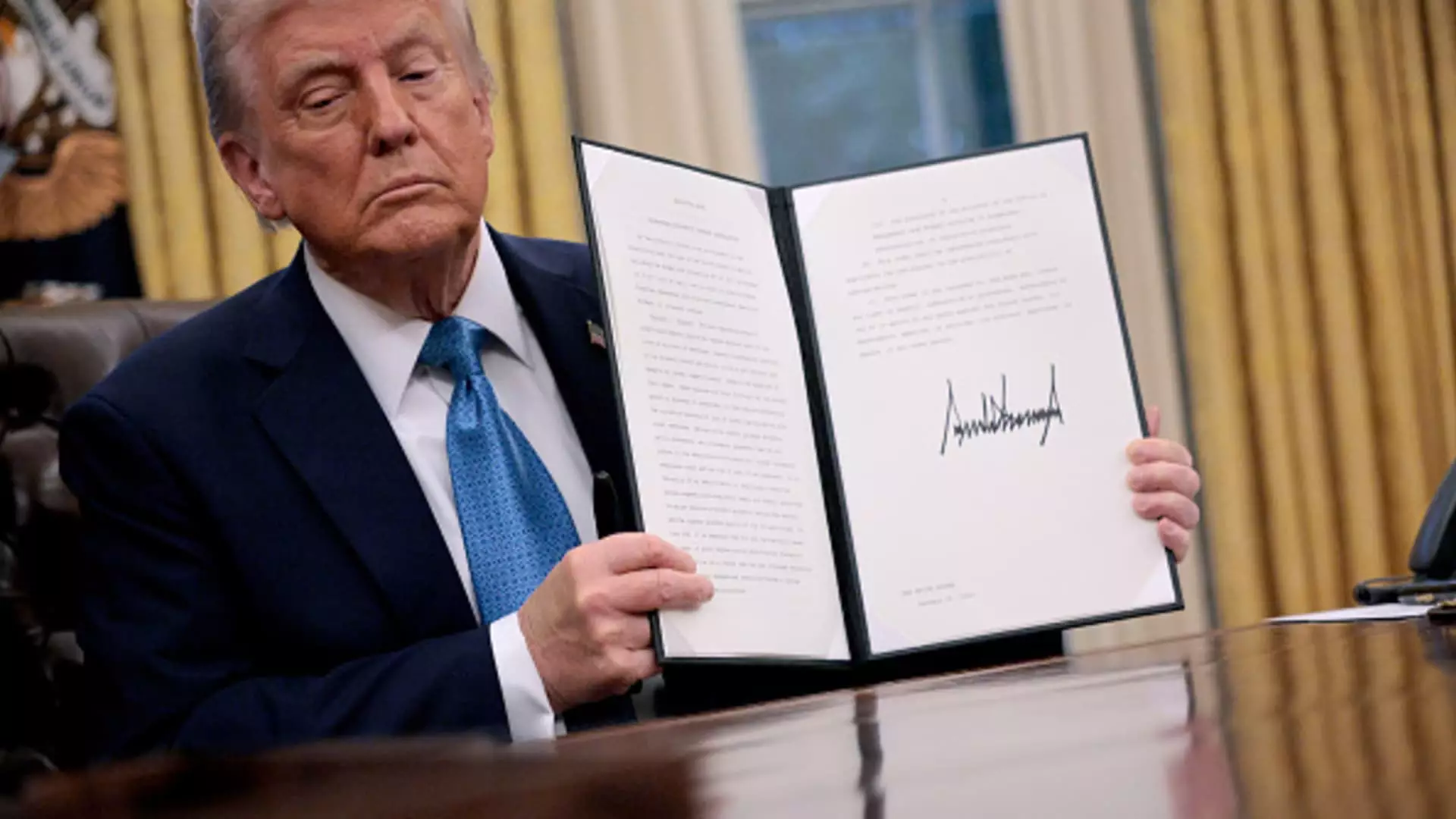The landscape of international trade has undergone significant upheaval, particularly following President Donald Trump’s announcement of tariffs that could catalyze a global trade war. This article will delve into the consequences of these trade policies, which have sent ripples through U.S. industries, stock markets, and corporate strategies. With tariffs looming large over key trading partners like Mexico, Canada, and China, the effects are becoming increasingly palpable across various sectors of the economy.
On a seemingly typical Monday, U.S. stock markets faced turmoil as shares tumbled in response to Trump’s announcement of a 25% tariff on goods from Mexico and Canada, accompanied by a 10% tax on imports from China. These tariffs are not mere numbers; they represent the potential for increased operational costs, disrupted supply chains, and diminished business confidence. After Trump agreed to a temporary pause on the Mexico tariffs in light of commitments from Mexican President Claudia Sheinbaum, the volatility continued, as the market remained uncertain about future trade relations.
Despite the temporary reprieve for Mexico, Trump’s threats against the European Union have aggravated fears of a wider trade conflict. The repercussions are vast, with warnings from prominent financial institutions like Goldman Sachs predicting a potential 5% decline in U.S. stocks. This forecast signals a keen awareness that corporate earnings could take a significant hit, further alarming investors.
The automotive sector has emerged as one of the most vulnerable industries, given its intricate international supply chains. Major manufacturers such as General Motors, Ford, and Stellantis are now on high alert. Tariffs could force these companies to redirect production efforts back to the U.S., raising operational costs and affecting logistics. As they grapple with potential increases in manufacturing expenses, the ramifications could ripple out to consumers in the form of higher vehicle prices.
The beverage industry is not exempt from this turmoil either. Companies like Constellation Brands, heavily reliant on Mexican imports, are already feeling the heat. The prospect of retaliatory measures from Canada, which may strip American alcohol from its government-operated liquor stores, adds another layer of complexity to this already volatile market.
Retailers such as Chipotle Mexican Grill and avocado supplier Calavo Growers are also bracing for impacts on their supply chains, primarily tied to Mexican imports. Rising costs for staple ingredients could potentially lead to increased menu prices and declining customer traffic.
The retail sector faces a particularly dire situation, especially for discount chains like Five Below and Dollar General, which significantly rely on Chinese imports. As tariffs come into play, these businesses may grapple with dwindling profit margins due to higher procurement costs. This issue could snowball, leading consumers to curb spending as prices rise, further dampening economic sentiment.
Global sports brands, including Nike and Lululemon, are increasingly exposed to the risks associated with Trump’s trade policies. Their reliance on Chinese fabric imports could lead to pressured margins and potentially jeopardize their presence in the lucrative Chinese market, where consumer sentiment may wane amid growing trade tensions.
Transport and Logistics: The Backbone Facing Disruption
Railroad operators are yet another sector facing significant challenges. Major companies like Union Pacific and Norfolk Southern stand to suffer logistic setbacks, as increased tariffs may slow the flow of goods across borders. The anticipated dip in cargo volumes could translate to falling revenues and profits—not to mention the longer-term implications for job security within these companies.
In a digital economy, e-commerce platforms, notably Temu and Alibaba’s AliExpress, are now grappling with the potential loss of the de minimis loophole that has facilitated their growth. This change could make imported goods less competitive, ultimately reshaping the retail landscape.
As President Trump’s trade policies continue to unfold, the immediate and long-term effects on various industries are becoming clearer. The prospect of a global trade war looms large, with far-reaching consequences for businesses, consumers, and the economy at large. Companies now find themselves at a crossroads, needing to adapt swiftly to a new reality marked by uncertainty and rising costs. Moving forward, industry stakeholders will need to remain vigilant as they navigate the complexities brought about by these tariffs, striving for resilience amidst the tumultuous tides of global trade.

